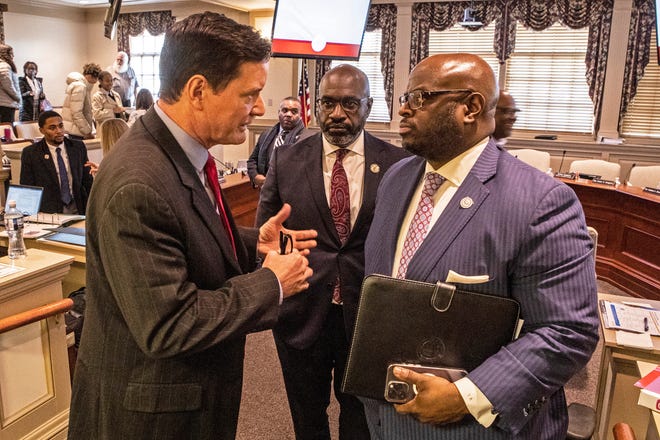Delaware State University made any member interested in joining its new coalition on campus safety sign confidentiality agreements first, as reported by Delaware Online/The News Journal this week. This included several students hoping to join the workgroup focused on addressing the very issues that brought hundreds out in protest just months earlier.
The Safe Space Coalition, seemingly a central spine in President Tony Allen’s continued response to campus unrest this year, formed in late January to assess existing protocol on safety, sexual violence, response services and more. Over 100 students, parents, community members and employees form the coalition across nine committees.
A national organization focused on First Amendment protection took notice after this reporting.
“Accountability comes at the price of their silence,” writes Zachary Greenberg, attorney and senior program officer with The Foundation for Individual Rights and Expression, in a letter to Allen and Delaware State University sent on March 15. Greenberg asserts this non-disclosure condition “plainly violates” student rights.
“DSU is a government actor with a duty to protect all students’ basic rights,” the author continues. “It cannot lawfully ask students to trade away one set of rights for another. Free speech, the ability to serve on committees, and student safety must coexist on DSU’s campus.”
Delaware State has so far stood firm in its opinion that such confidentiality agreements are a matter of privacy and protecting sensitive information. When reached Thursday, university spokesman Carlos Holmes confirmed the university’s receipt, but offered no comment yet. He assured that Delaware State will publicly share its coming response.
The full picture:Delaware State makes students sign NDAs to work on new coalition for campus safety
What’s the ‘Safe Space Project?’What a $300K grant for Delaware State University aims to address after student protests
Holmes previously told Delaware Online the measure “sought to respect the privacy and confidentiality of what we’re doing,” and all reforms implemented “will be shared with the campus community.”
Many students don’t see it that way. Organizers stopped answering messages. Others told this reporter they fear their school could sue them or pull scholarships. Most didn’t have time to question their alarms. Now, they worry progress may stall.

“It dilutes the very catalysts of creating that change,” said one student, wishing to remain anonymous due to signed agreement. “… It kind of dulls the very reason people became angry — about administration, faculty not handling these cases in the timely order they should be handled.”
But FIRE, the nonpartisan nonprofit based in Philadelphia, formally asked the school to rescind the requirement in its letter. And, it gave a deadline.
“Because this serious violation of students’ First Amendment rights remains ongoing, we request confirmation by the close of business on March 20, 2023, that DSU has rescinded the nondisclosure agreements imposed on student Coalition committee members,” Greenberg writes, offering any assistance in drafting new forms.
Delaware State has yet to formally respond.
This story is developing. Return to Delaware Online for more updates.
Kelly Powers covers race, culture and equity for the USA TODAY Network’s Northeast Region and Delaware Online, with a focus on education. Contact her at kepowers@gannett.com or (231) 622-2191, and follow her on Twitter @kpowers01.